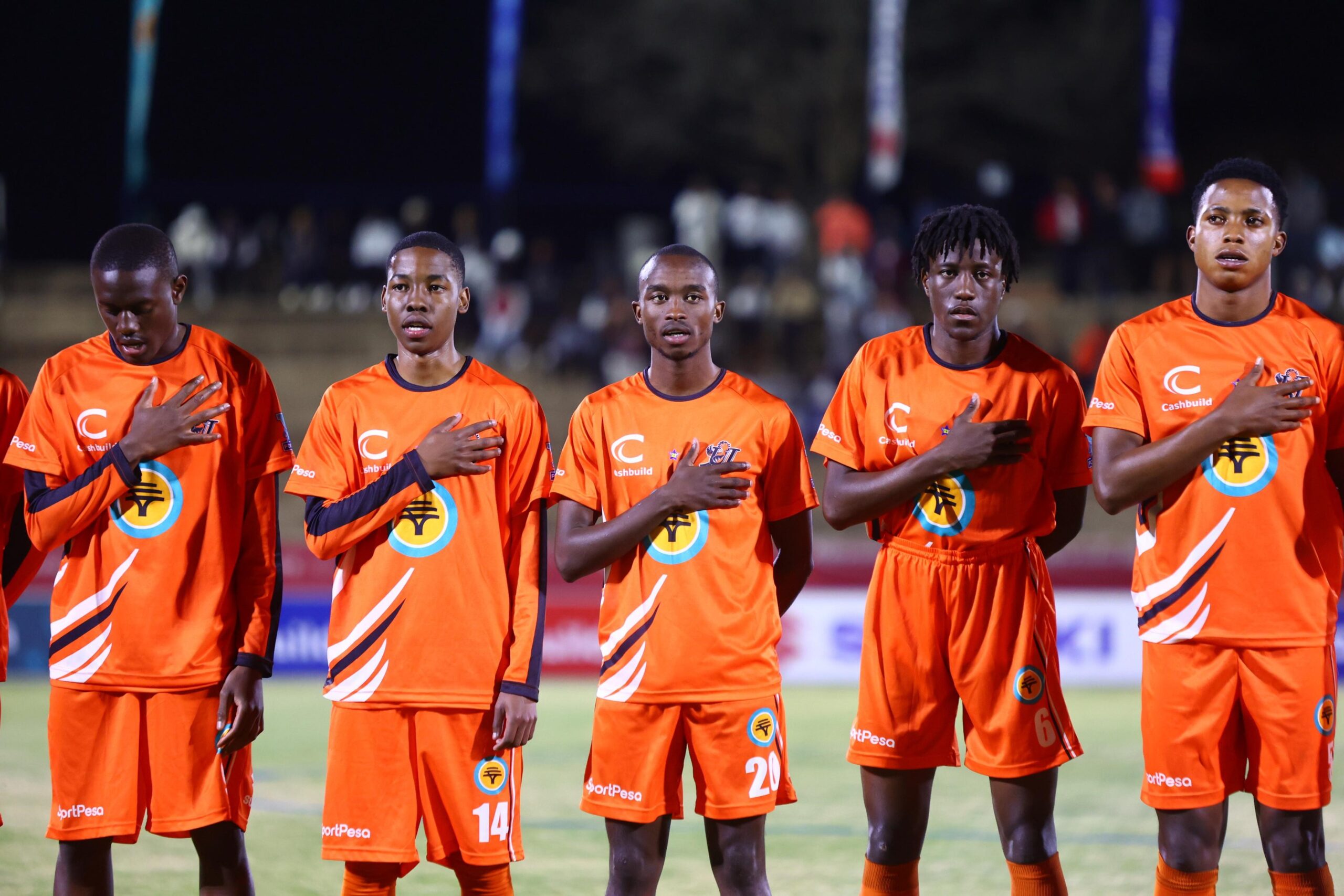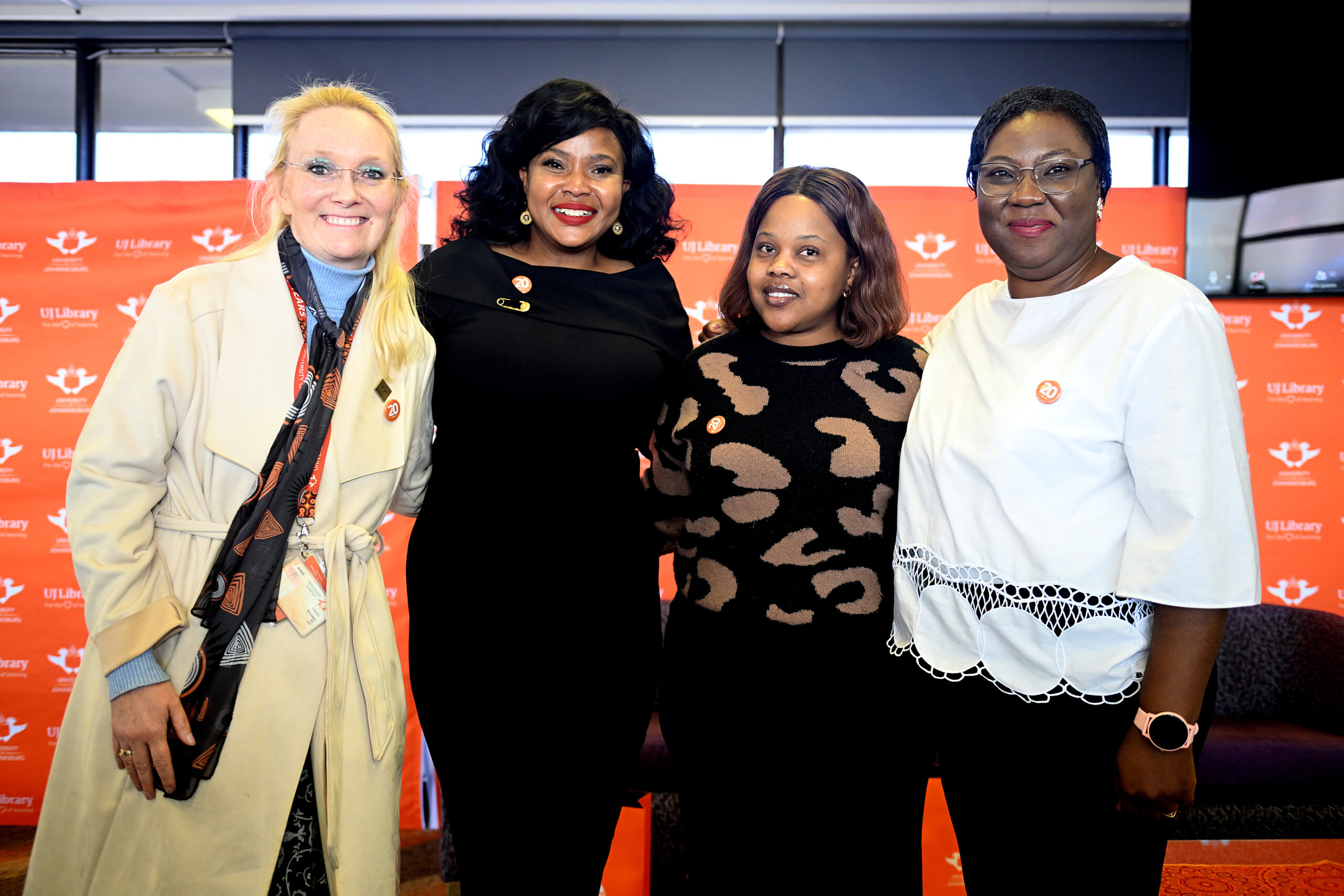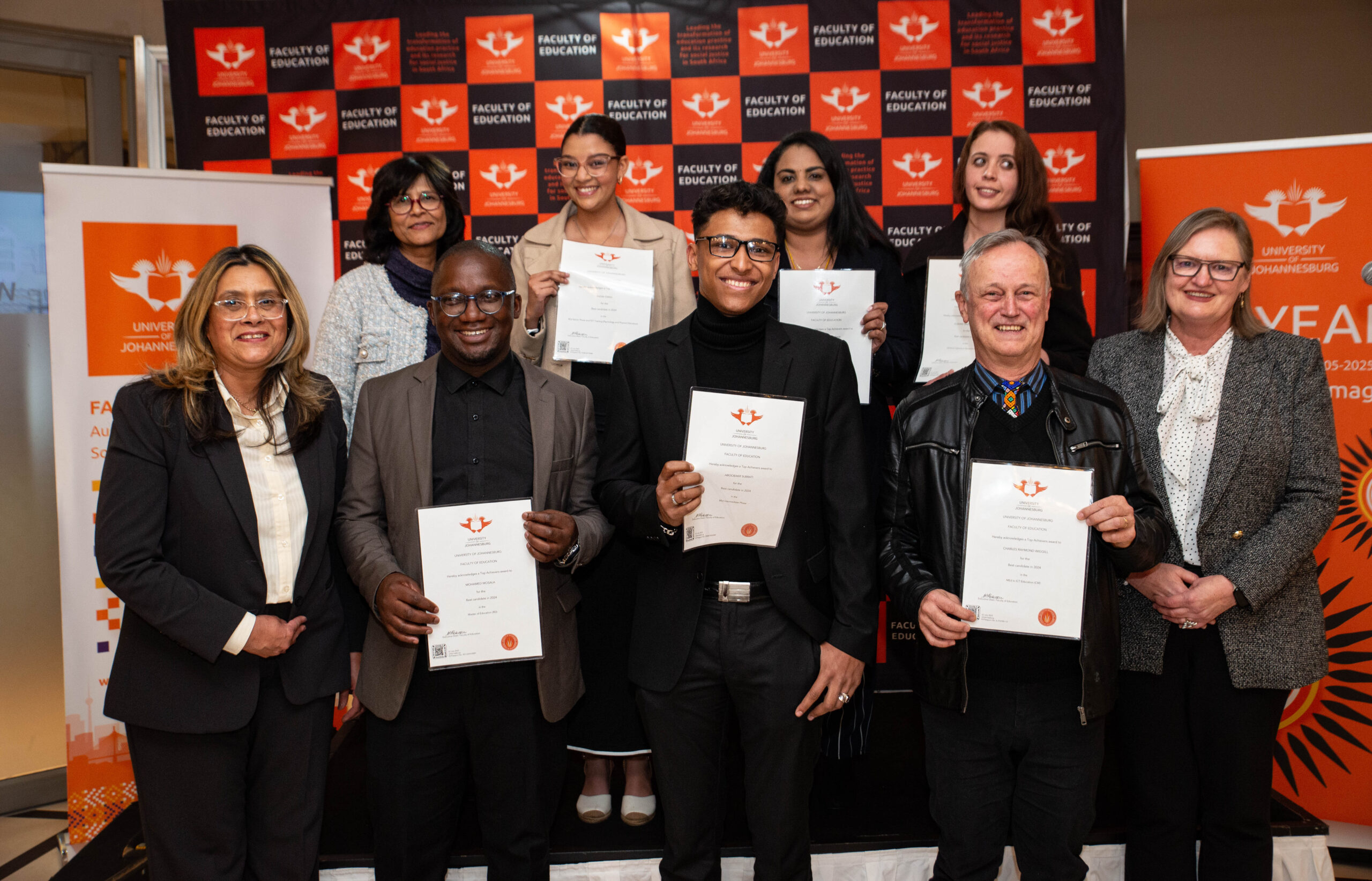UJ is positioning itself as an educational institution central to the fourth industrial revolution, within the context of the changing social, political and economic fortunes of Africa.
Academics, university management, the media and other stakeholders gathered on campus to orientate a wider community to obtain the skills required to succeed in the Fourth Industrial Revolution with a group of students who had participated in the exciting two day digital Winter school programme under the theme ‘4IR in practice’.
This annual digital winter school programme in Africa, facilitated by The Academic Development Centre (ADC) at the University of Johannesburg (UJ), started on 09 July until 10 July 2019 at Auckland Park Kingsway Campus.

“As this is a brave new world we are entering into, 4IR is not just a step in the road but an enormous leap. Prof Ryan, Executive Director: Academic Development and Support said that when he reviewed the programme, he “couldn’t wish for a more exciting and interesting bunch of people” to present.”
The occasion kicked off with Dr Tebogo Mashifana, who featured in the 2019 Mail & Guardian Top 200 Young South African. Dr Mashifane spoke about the “Young Women for STEM in Africa,” as UJ actively promotes initiatives that aim to close the gender gap in STEM fields.
What followed was an enticing presentation from a Masters student, Ms Ananda Booi, who mesmerised and enticed everyone with her presentation on how to 3D print your world – from clothes to homes.
During the event, UJ’s TechnoLab, was represented by two 4th year students who brought some robots to demonstrate how programming can make inanimate objects move via coding. It was really fascinating to see how these students were able to enable a robot to solve a maze.
Besides the intriguing demonstrations, another highlight was of Dr Arno Louw, UJ Senior E-learning Specialist who presented on the intelligent Agent (AI) behind Artificial Intelligence (AI). As in how AI can be a hype but humans are still the agents behind the technology. The thought-provoking session was a huge talking point because we often forget that humans can “control” the rapid speed of technological advancements.
Prof Hennie Grobler’s session on future-proofing mining education in the 4IR because he brought a VR (virtual reality) exposition with him. Prof Grobler’s presentation was about how he incorporated cutting-edge tech into his curriculum to better prepare his students about what to expect when they go underground as mining surveyors. His VR tech enables students to experience conditions underground and prepare for health and safety risks. His VR expo outside of the Winter School was eagerly embraced by attendees because they too got to experience those conditions underground. The audience had a lot of questions for Prof Grobler and the discussions involved incidents from mines all over South Africa, including a debate about Zama Zamas.
For a real change in professions in terms of using 4IR Andrew Makkink presented a thoughtful presentation about Emergency Medical Care and how UJ is using R1000 000-worth manikins to train our students as first responders. His main message though was that 4IR does not need to only be a resource for rich students. As a case in point was when he shared photos from 1st year students who used play dough to replicate wounds and they were so life-like and real that it was impossible to believe that R200’s worth of play dough could enable students to study and produce such vivid results. It was a real tangible reminder that 4IR is also as basic as play dough and doesn’t need to involve high tech.
Dr Andre van Zyl’s highlight of Day one was the student panel from the Electrical Engineering Sciences as four brave and very articulate students presenting their research. Ms Shiksha Dheda, Ms Prathika Maraj, Mr Marchel Sagming and Mr Jonathan Jacobs thoroughly entertained viewers and audience members alike with what they are busy working on in terms of “serious games” as engineers. This fascinating panel discussion was coordinated by their study leader Dr Reolyn Heymann who is a senior lecturer. The students talked about the games that they are currently building and testing as they navigate the world of health concerns because they want to make a difference in South Africa. It was so exciting to hear about their dreams and ambitions for these young people are taking 4IR by the horns and making waves that can potentially impact the lives of thousands, if not millions, of people. UJ is so proud of them and we embrace these students and their initiatives.
Day 1 event ended with Richard Hlalele who educated us all on cyber security and UJ’s efforts to stay abreast of threats, phishing, and hacking. Luckily, UJ’s strives to stay on top of all threats and alerts students and staff of any attempts of cyber attacks.
Day 2 was opened by Dr Andre van Zyl – Director of the Academic Development Centre – who was responsible for the Winter School. Reimagined. event. His overview of Day 1 was both succinct and illustrious as the audience navigated the landscape of 4IR.
Dr van Zyl highlighted Day 1 take-aways and it was clear that his experience of Day 1 was positive, informative, educational and enriching.
The keynote address was provided by Prof Babu Paul who presented a very insightful overview of an introduction to 4IR: what it came from, and what it actually means, practically, and what it might possibly mean in the future. The most memorable part was a warning about data: “Churchill once said that you should study history but Prof Paul now says that you should study historical data. The fascinating presentation was enticing to say the least as it covered South Africa’s preparedness for 4IR and how environmentally friendly bins can assist in recycling work, how traffic lights might allow ambulances to get green lights all the way to the hospital, and how 3D printing can make a huge difference in developing countries.
The FADA FAB LAB presentation from UJ’s Architecture HOD, Denver Hendricks, challenged the audience with how pedagogy can plug technology into the curriculum without losing creativity and innovation.
What is life? What is biology? What an interesting presentation from Prof Duncan Coulter – the HOD of Computer Science. A philosophical discussion about how these two questions apply to AI was absolutely intriguing as we explored what intelligence, actually, is. Prof Duncan took us through an academic exploration of simple organisms (without intelligence) becoming intelligent when interacting with other simple organisms to show intelligence, and to them becoming multi-agents and systems. When simple organisms like slime molds work together to find food (for example), the merger displays intelligence and can actually solve a maze. The fascinating presentation was a way to demonstrate artificial intelligence and the future of artificial intelligence. It demystified so many hiccups around the issues we currently experience in popular culture that this was a key presentation on “strong intelligence” needed for the general public.
For a real change in pace Prof Reinout Meijboom asked some tough questions about solving poverty and having 4IR turn into an open sourced revolution. His presentation was themed “Imagine…” and it was really an eye-opening experience of imagining an “ideal” world. In practicality, his department helped students to pay R8 for a 3D printed model building kit in Organic Chemistry that would have cost R200. He can print an open sourced digital microscope for R700 instead of paying R100 000 for a closed sourced one! As a walking testimony to the open sourced revolution that he would like to see the 4IR movement channel into, the open sourced ecology is definitely one that society needs because therein lies the tools to build a new kind of society. Did you know that you can light up Joburg (via electricity of course) by recycling glass?
The science of the small – as in nanotechnology – from Prof Kriveshini Pillay: we explored how a grain of salt can be “grated” as it is manipulated of the matter to increase its surface area. Nanotechnology is already all around us and has been for thousands of years but we only “discovered” it recently. The possibilities of this kind of research astounded us as we had no idea of how it could possibly be used. However, what about using nanotechnology to solve crimes via smart censors (imagine on your smartphone – when a mugger takes your smartphone a censor can connect the nearest police station to the thief), or stop a car’s engine from starting if a censor depicts ethanol due to a drunk driver?
4IR in professional careers like Chartered Accountancy was the topic from Husain Coovadia, a Senior Lecturer and Deputy Head in Commercial Accountancy. The important points made regarding staying and remaining relevant in the Fourth Industrial Revolution were well considered and explained as it was evident that CA’s can’t be replaced by automation, algorithms or robots. Husain also mentioned how forward-thinking UJ’s College of Business Economics (CBE) by launching a 4IR inspired online course that introduces a new kind of thinking and information structure for accountants and CA’s in the 4IR era.
Lastly – and the final presentation for this year’s Winter School – we had an insightful and special view into the world of Industrial Design from Senior Lecturer Martin Bolton. The showcase from student examples of real-world applications where industrial designs made a difference was impeccable. Martin showed us how recycled materials and parts built from 3D printing resulted in a fellow student building a Hellotropic solar cooker using a parabolic reflector that is embedded with a solar tracking device. Mind = blown. What was also really interesting is how they can use VR for quality control, virtual sculpting and assessment.
The fruitful conclusion of this year’s Winter School. Reimagined. initiative is clearly one of synergy: imagine a world where Industrial Design collaborates with the Department of Architecture and the Mining Department: done. It is happening right now because of this Winter School. Imagine a world where the Department of Emergency Medical Care collaborates with the Mining Department. It is happening right now because of this Winter School. We have reimagined what 4IR means and showcased 4IR in practice with academics, students and real-time applications that connected people, ideas, and made take-away’s take-to’s. We recycled not only ideas but possibly actual parts of recyclable objects that the UJ community doesn’t need any more but UJ students can benefit from using – what an event!
“In closing, the 9th and 10th of July were two amazing days full of enriching presentations from pioneers who flew the UJ flag high. We truly have orange blood because we do not shy away from challenges. The concluding message is that the challenges of 4IR are being faced head-on with UJ academics and students leading the way to concur avenues not previously explored in terms of teaching and learning,” said Liana Meadon, Senior Manager: Academic Development Centre.





